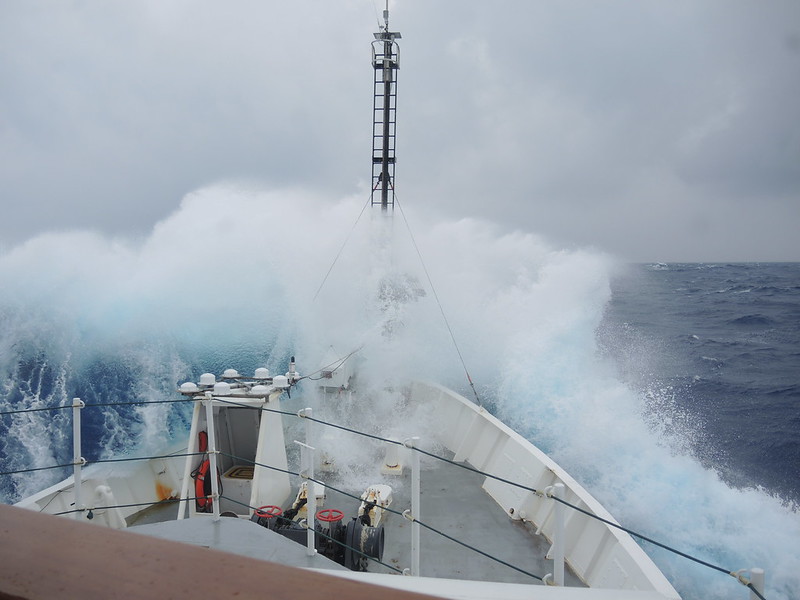Response to a Mars Report: I read with great interest Mars Report 202302, and the related report from the Belgian Investigation Department 2021/004987, which explains a very serious accident that occurred on a VLCC where the C/O and bosun passed away when blue water washed across the deck. This incident caused a stir and debate among us officers because the VLCCs we work on are twins of the accident vessel.
The Nautical Institute gathers reports of maritime accidents and near-misses. It then publishes these so-called Mars Reports (anonymously) to prevent other accidents from happening. In this case, a reader responds to a particular Mars Report, 202302. He writes:
The conclusions written in both the January Mars issue and the flag state report are absolutely spot on, but many questions remain unanswered. For example, why choose to pass so close to the coast? If you look at the well-known Ocean Passages of the World (NP136), it is clearly written that ‘The risk of freak waves is present here’.
The captains I sailed with when I was 3/O and 2/O always told me to stay as far away as possible from the 200-metre bathymetric due to the risk of freak waves. In fact, during my last passage of Cape Horn (September 2016) with a fully loaded suezmax oil tanker, the captain instructed the 2/O to plan a crossing of the Cape further south in order to avoid this risk.
Also read: Buoy registers freak wave of almost 23 metres high
On the other hand, it should be noted that NP136 suggests a waypoint which in latitude is not so different from that where the accident occurred, and this can be problematic especially if the navigating officer and/or captain have never passed Cape Horn (in short, lack of experience).
It is very important that the shore-based routeing companies are aware of the possibility of freak waves and any dangerous event for planned navigation. However, it is true that there are no dedicated wave observation buoys and that the Chilean hydrographic service has not received any reports or observations regarding freak waves.
I think it might be a good idea to inform the Admiralty about the freak wave risk in this area by including this incident plus the other two listed in the final report issued by FEBIMA.
Also read: Rogue wave results in fatality on board cruise ship Viking Polaris
Mars Reports
This accident the reader responds to was covered in the Mars Reports, originally published as Mars 202302 (link above). The response was published as part of Report Number 374. A selection of the Mars Reports are also published in the SWZ|Maritime magazine. The Nautical Institute compiles these reports to help prevent maritime accidents. That is why they are also published (in full) on SWZ|Maritime’s website.
More reports are needed to keep the scheme interesting and informative. All reports are read only by the Mars coordinator and are treated in the strictest confidence. To submit a report, please use the Mars report form.
Photo (for illustrative purposes, not related to the incident) by NASA/SABOR/Chris Armanetti, University of Rhode Island/Flickr.








